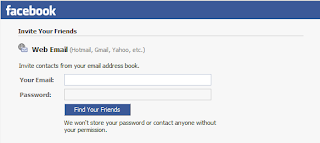After the recent outbreak of a worm that hacked user Facebook accounts and disseminated through users contacts, Facebook responded with a post with advice to users on general tips about web security. Facebook head of security Max Kelly, a former FBI computer forensics examiner, wrote a blog post with advice to Facebook users including:
As a Facebook user you can help us protect you by doing the following things:
- Report any spam message or posting you see. The more reports we get, the easier it is for us to respond decisively.
- Never share your Facebook password with anyone. Never. No Facebook employee will ever ask for it, and no one else should know it. If you are ever prompted to log in to Facebook, make sure it’s from a legitimate Facebook web address. If something looks or feels off, go directly to www.facebook.com to log in.

Never entering your credentials on a non-Facebook site is very good advice, which most users should know by now and should adhere to. The problem is that Facebook do not seem to support these same principals when it comes to a users credentials from other sites, such as a users Google username and password, which Facebook requests when a user imports their contacts. The screenshot below is from Facebook, its the feature where a user can login to their Google, Hotmail or Yahoo account, from within the Facebook site, to retrieve their contacts.
The Facebook security team have stated what is good practice on their blog, perhaps its time for them to direct their energies internally and evangelize support for oAuth and other open data formats as both a more secure and conveniant mechanism for data exchange.
Don't miss any article:Get it by E-mail


